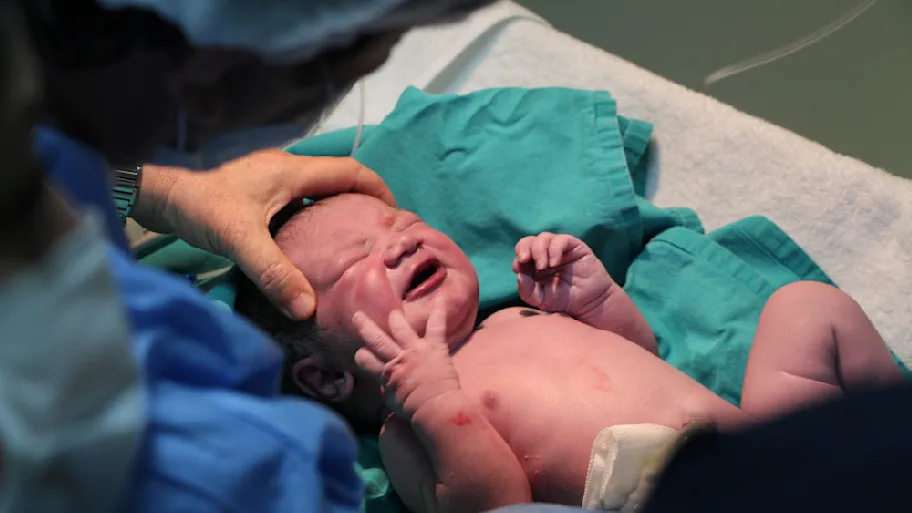
- Science News
- Featured news
- Alison Spiro – To be understood and listened to
Alison Spiro – To be understood and listened to
Author: Rose Gordon-Orr
In celebration of World Breastfeeding Week 2022, Women in Science speak with the breastfeeding expert Dr Alison Spiro. Alison won the Julie Crawford Award for Breastfeeding Support in 2009 and has recently published a book “Breastfeeding for Public Health: A Resource for Community Healthcare Professionals” (2022). She is also currently a Topic Editor for “Breastfeeding: a sociological reflection on new mothers’ wellbeing” within Frontiers in Sociology.

Photo credit: Stephen Spiro
Could we speak about an overview of your career and what led you to become a breastfeeding specialist?
“I started off in nursing and then I soon trained as a health visitor and I worked as a health visitor in North London. I was, right from the beginning, really interested in why women gave up breastfeeding so quickly. I had come from a breastfeeding family and it was the norm for me. I started doing a little bit of research of my own, you know, counting numbers of when people gave up, which would be the time (often weekends), when there weren’t professionals and people around to give support.
“Then I had a career break because I had three children. During that career break, I trained as an NCT breastfeeding counsellor and became a national tutor, training people all over the country, which gave me a good base on breastfeeding. When my youngest went to school, I returned to part-time work and was quite interested in passing some of the knowledge I gained through being an NCT breastfeeding counsellor onto my colleagues.
“Then a friend of mine saw an advert in a health journal about an MSc in Medical Anthropology at Brunel University and I thought that sounded really interesting, so I applied. I went straight into doing an MSc but they counted my health visiting as a first degree. Medical anthropology was really stimulating, I loved it. Everybody came from different professions and different experiences. The conversations in the coffee bar were as good as the lectures, almost. {laughs} It was brilliant.
“For my dissertation, I studied Indian mothers in Harrow where I was working as a health visitor and I was absolutely amazed by my findings. I had never really worked using qualitative methods before and it was so revealing and so inspirational."
Some of the things I discovered I had had no idea of. You think you understand families when you are a health visitor but then I found out so much more about people’s belief systems
Where did your career path lead you to next?
“I went onto completing a PhD and I got a Florence Nightingale scholarship to go to India to do my fieldwork. That was great, I lived with a family there for three months. That was just amazing. You know, it was just such a different experience.
“I thought it was going to be fairly straightforward but it wasn’t. Immersing yourself in a different culture is quite challenging but once I was there and had worked out my daily patterns and different informants, I could go to different clinics and hospitals and meet people in their homes and I learnt how to get around the city.
“I found the families incredibly accepting and friendly and they were all very keen to tell me a lot about their culture.
“My PhD was on ethnography and I was looking at all different family structures and family members. I wasn’t just focusing on breastfeeding, I was looking at gender issues and power relations in the family but you can’t separate breastfeeding from all of those things really. In all cultures, it is embedded deep within the culture.”
What did you do after your PhD was over?
“I wrote papers for various journals and I wrote two book chapters. I wanted people to hear about my research as I didn’t want it to be sitting on a shelf collecting dust. I spoke at professional conferences as well about a lot of the things I had found, which was good.
“I remember one of my supervisors telling me that once you had done a PhD then you can write papers for the rest of your life, and actually there is something in that. You know, every now and then something triggers my curiosity and I want to dig a little deeper into that.
“I also worked as a specialist health visitor in community trusts and hospital trusts. I became accredited with the UNICEF Baby Friendly Initiative, which NHS trusts can apply to become accredited with, and I managed to get both the hospital and the community trust accredited.
“Working in a multicultural area, my research really informed what I did in my professional career and the way that I approached things, and that sort of carried on and I hope I left a legacy there.”
“I have also worked for the World Breastfeeding Trends initiative (WBTi) and we did a UK-wide report (2016) about the state of breastfeeding in the UK which was really interesting and we launched it in Parliament.
“I was also part of the 2019 Becoming Breastfeeding Friendly (BBF) initiative, which was started by Yale University. The difference between that and the WBTi was that it involved central government and it looks like around the world where they have used this initiative, once central governments are on board with it, changes happen. Unfortunately in the UK, we have had problems with them taking the recommendations. Scotland and Wales have run with it but England has been slow, even though Public Health England were employed to be part of this Yale project, it never went to the ministers and it never went to Parliament.”
Have you noticed a shift in breastfeeding research during your career?
“Breastfeeding was always seen as a sort of biomedical thing managed by medicine and nursing but we know it is much more a sociocultural experience and the medical management way of looking at breastfeeding is not always helpful I think. Women do not want to be managed, they want to be understood and listened to. It is really important.
Women do not want to be managed, they want to be understood and listened to
“In my book, which was published in April of this year, I explore anthropological perspectives and cultural perspectives as well as obviously looking at some of the more practical sides. I wanted to be able to share that with colleagues and all community healthcare professionals.
“Although, I can see a lot more qualitative work now in breastfeeding around the world. In the UK, the University of Central Lancaster has led the way with what they call MAINN (Maternal and Infant Nutrition and Nurture Unit Conference) which is all based on qualitative research and is all very inspiring. I think you learn so much more about breastfeeding by taking that approach.”
One of the goals of World Breastfeeding Week is connected to the Global Nutrition Targets 2025 (namely, to increase the rate of exclusive breastfeeding in the first 6 months up to at least 50%). In your opinion, what needs to be done in order to achieve this?
“I think there needs to be a societal change where women are supported. In the UK at the moment we have a very sad situation where women want to breastfeed but don’t find that they get the support to do it and I think it is so important that families understand breastfeeding and the support that is needed, rather than just turning to formula milk as the solution.
“There is a lot of support for breastfeeding in the UK. There are organisations that train breastfeeding counsellors and breastfeeding peer supporters who have very sound knowledge of what women are looking for but sometimes women just don’t know of their existence so I think we definitely need a societal change, and you know it is not just telling women that “breast is best”. There is no point telling women that if they don’t get the support to go with it.
“I think a lot of it is embedded culture and the women, who are most likely to breastfeed in the UK, are the women from different ethnic groups rather than white UK women because they have more support from their families I think. Certainly in India, I found that families, especially mothers or the mothers-in-law, gave a lot of support. In the first 6 weeks, new mother don’t tend to do anything in the household other than looking after their babies.”
What advice would you give to young women looking for a career in the sciences?
“Go for it!
“I have been brought up in a family with a strong sense of women in science. My mother was a physicist and one of the only women physicists during the war, in Cambridge. I always felt that women should follow their dreams, follow what interests them and I just think it is so important.”

Frontiers is a signatory of the United Nations Publishers COMPACT. This interview has been published in support of United Nations Sustainable Goal 5: Achieve gender equality and empower all women and girls.
About Frontiers
Frontiers is the 3rd most-cited and 6th largest research publisher. We publish groundbreaking discoveries by the world's top experts. Scientists empower society and our mission is to accelerate scientific discovery by making science open. We place the researcher at the center of everything we do and enable the research community to develop the solutions we need to live healthy lives on a healthy planet. Featuring custom-built technology, artificial intelligence, and rigorous quality standards, our research articles have been viewed more than 1.9 billion times, reflecting the power of research that is open for all.






